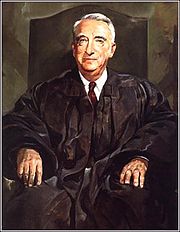The Schenk V. United States case discusses the time where Charles Schenk and Elizabeth Baer distributed pamphlets advocating US citizens to dodge the draft for world war one. Schenk argued that the draft violated the thirteenth amendment which disallows involuntary servitude (side-note: this is referring to servitude as in servants and slavery not military service). The court then indicted them in violation of the Espionage Act of 1917 for just saying this. The court's grounds were that they attempted to cause insubordination in the military and obstruct recruitment. Obviously, Schenk did not agree with this ruling, so he entered the appeals process. He appealed on the grounds that the courts were violating his first amendment right by suppressing his message. The courts, however, denied this appeal. They stated that it was an "appropriate exercise of congress' wartime authority". It was deemed that by disrupting US war efforts Schenk posed a "clear and present danger" to US efforts. Judge Holmes likened it to yelling "FIRE" in a theater, which was not permitted under the first amendment. Personally, I have qualms with both sides. Regarding the original pamphlet, I don't think its argument is sound because the thirteenth amendment is not referring to military servitude, but rather it is referring to slavery, and Schenk twisted its meaning. Although, regardless of this, I think the court was violating Schenk's first amendment right by suppressing his message. The first amendment states, "Congress shall make no law respecting an establishment of religion, or prohibiting the free exercise thereof; or abridging the freedom of speech, or of the press; or the right of the people peaceably to assemble, and to petition the Government for a redress of grievances". In no place does this say, "unless this speech causes a clear and present danger". This statement would have appalled Jefferson, the drafter of the bill of rights. It leaves what is a clear and present danger up to the interpretation, and manipulation, of those in power. If dissent against a draft is a clear and present danger, how long until dissent against a president and their stacked court is a clear and present danger?
Chief Justice Fred M. Vinson:

Augusto Pinochet (a man who eliminated a lot of dissent and freedom of speech in Chile):

Chief Justice Fred M. Vinson:

Augusto Pinochet (a man who eliminated a lot of dissent and freedom of speech in Chile):

Comments
Post a Comment